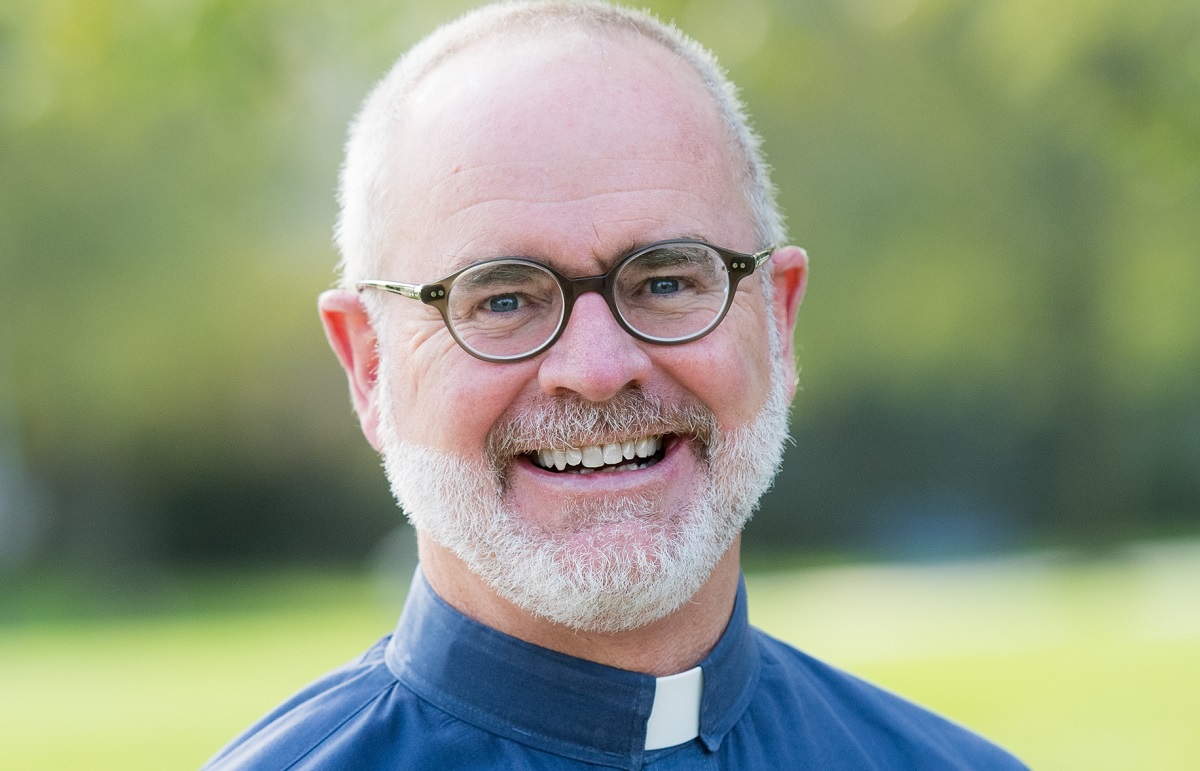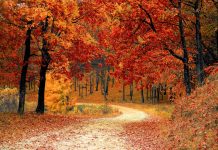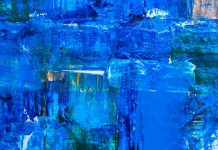Divine Property Lix : Refugees
I stood at the wall—the half-broken wall—
holding the prayers they left behind, scraps of paper
sticking to the cracks, small pieces like rags
stuck to the stone, blowing in the wind off the water,
where I could see all the generations lined up,
moving through the fields with their copper cups,
their old silver, their incense sticks still smoking—
the precious things they carried on their backs
for miles, across the rough ground, through mud and thorns,
past whatever was left of the vineyards. I called to them,
holding the gate open, but they passed right by,
seeing only the hole blasted clean through the stone
from that last rocket fired out of the Dead Sea,
where nothing good comes, where there’s only ruin.
And I read from the book, one name after another,
tracing their genealogy with my finger, and for each one
I made a mark in thick black ink I’d pulled out of the earth
near the mortar pits—thick, slow-moving sludge,
mixed with what was left of the fires, the ash, and oil.
And I gave a blessing, standing alone in the sanctuary,
my hands covered with the scent of it all—
old leather, burnt wool, my skin smudged black as I spoke,
feeling like I could collapse, still holding the scrolls
as I opened them to the law and butchered the lamb,
saving the heart, wrapping it in wax paper like a secret,
and anointing each person who leaned in close enough,
close enough to smell the smoke,
the old blood, the brine off the water, close enough
turning their backs on home, daring mercy.
Divine Property : First Frost
I place my Book of Common Prayer
face down on the table where word
and grain become one. I leash the dog,
leave the house while it’s still morning,
and together we step into frost,
the grass snapping, brittle as it bends.
I watch the lanternflies, pale now,
their red fading, soft wings laid open
in the sweet pulp of what they stole
from the trees.
The lake has gone to glass, thin and webbed,
reaching from one shore to the other,
and high above us the geese lift off,
one line then another,
heading south in a quiet V,
each cry breaking the cold.
I unclip her leash; she’s gone in an instant,
paws pressed into white crystals,
then down into the birch shadows
where trees lean toward each other,
saying what they say in the way trees do,
back and forth, with no rush.
She leaves tracks like a question,
leading me farther out, past where the frost ends
and the sun touches rooftops, pale and wide,
across the houses where neighbors still sleep,
missing the quiet that shifts through the dark,
and the way, in early light,
the world moves on by itself.
Divine Property : Waiting Room
In the waiting room,
I look out a window
at a cherry blossom,
its full maturity stark, yet soft.
I am the only one here,
ignoring dog-eared magazines,
set out to pass time,
as my youngest goes for an ultrasound,
escorted by an indifferent tech.
We will discover what meaning lies
within the lump, what fortune will unfold
in the black-and-white spirals of the image.
Will he suffer or be cleared—
walk free of any sentence, any treatment?
For now, does he need an incision
to cut away all that could possibly consume him,
a maelstrom brewing deep
within a tumor that seemed
so insignificant days ago,
before he flew home from California,
for the holidays, his dreams on hold—
to find the meaning of a growth
that can take him deep and away.
Divine Property : Yard Word
I need that groundhog who slinks
from the shadows, slipping through the weeds,
while my retriever, all enthusiasm,
bounds in pursuit but comes up empty.
I hope the groundhog finds a cozy burrow,
digging deep toward my yard,
while I stand here, mud clinging to my boots,
spade in hand, heavy as a memory
from one valley to another.
I, with Brother Hog, could feast on grubs,
turning this stubborn clay into rich, dark earth.
I am Adam, shaping my form,
but stuck on the head—my eyes squinting,
the nose still feels off somehow.
So I press down hard on the spade,
turning over the earth,
hoping for something deep and fertile,
only to uncover orange and gray,
like the remnants of forgotten summers.
I am the maker of gardens,
the butcher of dreams,
the executioner of tomatoes and cucumbers,
watching green yield gold,
and I wonder—
in this cycle of creation and loss,
what whispers beneath the surface,
waiting for a chance to rise,
waiting for the sun to crack the earth open?
Divine Property : LXXXIX: BLOOD
“On the way, at a place where they spent the night,
the LORD met him and tried to kill him” (Exodus 4: 24)
I was there in the dark, deep in the weeds, half-dreaming,
and it was blood that saved me—just a slash of it,
a drop tossed like a coin into that dirt under a swollen moon.
And what else was there but that cricket, hidden somewhere,
singing its one-note, its stubborn hymn, breaking the quiet
between rocks, black against black, a shiver in the brush.
I wrote it down, the whole thing, if only to remember—
the blood crusting into sand like an old law, hard and silent.
God leaning down, the shadow heavy and hot,
leaning so close I could feel the breath of it.
It was the oldest trick, blood, the promise,
and here I am, saved by a sharp stone and a prayer
that rubbed itself against my skin, desperate and raw,
and grace like a strange, wayward whisper,
humming back and forth through the trees,
whistling its one wild note over and over
until the dark was broken.
About the Author
Tim Gavin is an Episcopal priest. In addition to his most recent publication, A Radical Beginning (Olympia Publishers, 2023), he is the author of Lyrics from the Central Plateau, a book of poems released by Prolific Press in November 2018. His articles, essays, and poems have appeared in The Anglican Theological Review, Barrow Street Review, Blue Heron Review, Blue Mountain Review, Cape Rock, Chiron Review, The Cresset, Grow Christians, Digital Papercut, Evening Street Review, Library Journal, Magma, Poetry Quarterly, Poetry South, Poetry Super Highway, and Spectrum. He lives with his wife, Joyce, in Newtown Square.












